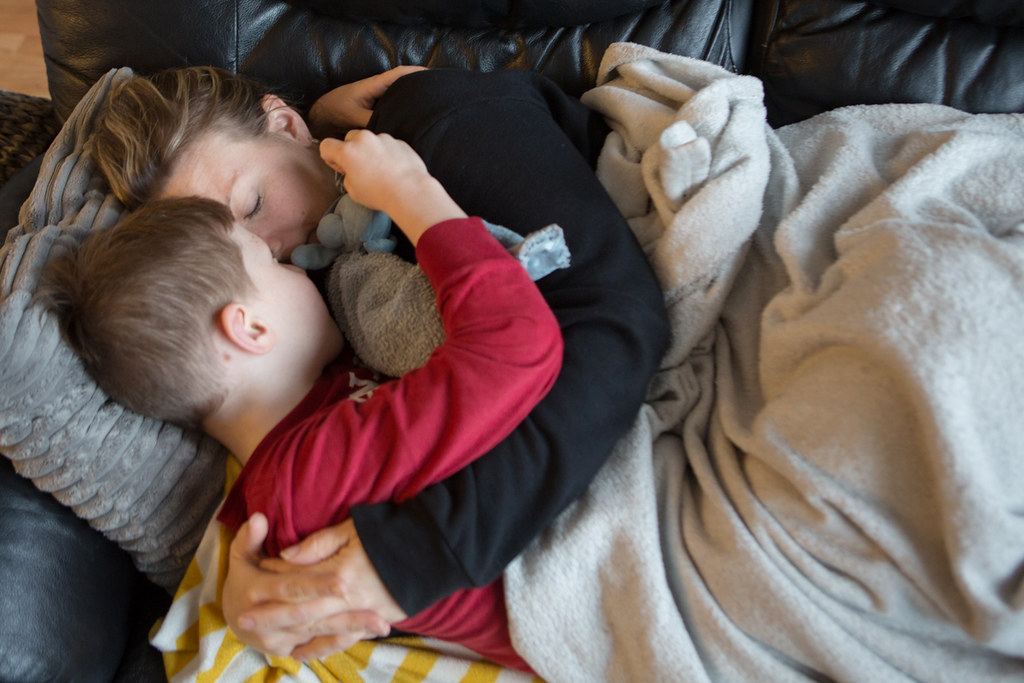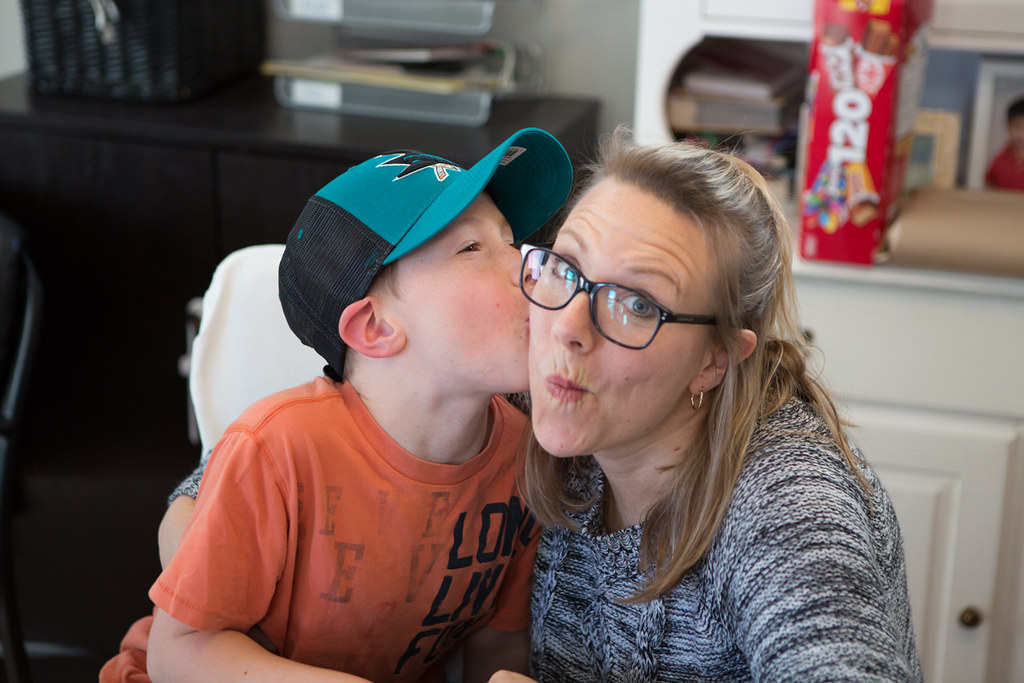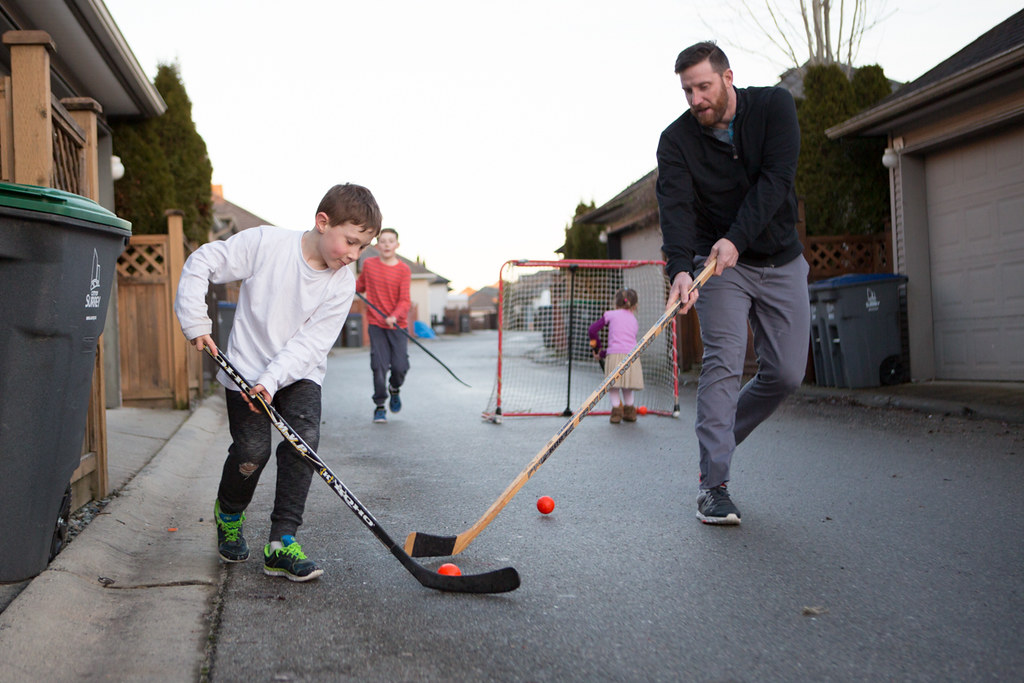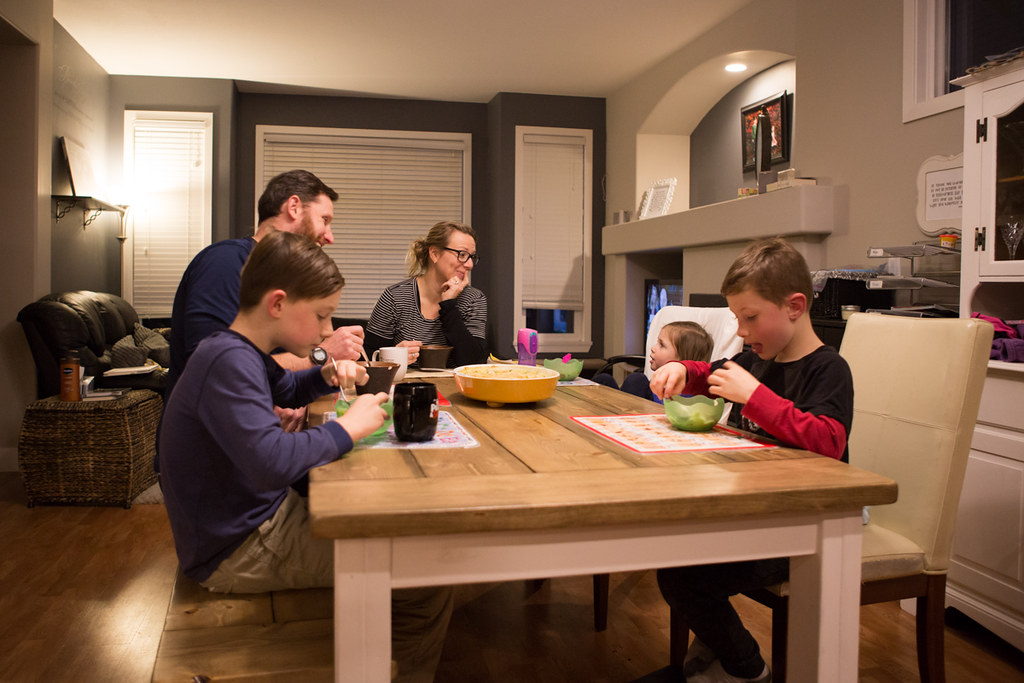First off, let me say that I am not claiming to know how to be a great parent. What I am sharing is what I have learned about parenting over the past 10 years. Yes, I'm a bit of an information seeker and have gleaned ideas from experts, classes, books and fellow parents. I've sifted through all of the facts and opinions and have taken what has worked for our family and am continuously open to learning more. This whole parenting gig is a lot more complex than I initially believed and I appreciate that we are able to learn from each other. We have a range of personalities and needs in our family and I feel like these tips address many factors.
1. Empathy goes a long way.
When your child is having a meltdown or feels overwhelmed, how do you respond? When I'm frustrated and things are escalating, I appreciate empathy in the form of "That sounds tough" "I'm sorry this is happening" "It's hard when ______" and then working towards a solution. I would not like to hear "That's enough. No treats for you" or "Grow up". We may not like how they are expressing themselves but saying you understand and recognize their feelings really helps them feel that you are on their side and deescalates the situation. Children learn the skill of empathy through us demonstrating it, too!
2. Look beyond the behaviour.
Often we want to deal with the behaviour and don't look at WHY it's happening. "You're bugging your sister? Stop and get out of the room." "You're refusing to put on socks? You have to or no screen time." This approach is not going to help long term with any behaviour problems. Why is your child bugging their sibling? Why don't they want to put on their socks? They are not trying to make you angry; there are so many factors that can be at play from thirst to hunger to an overwhelming day at school to sensory issues to boredom or tiredness. Vanessa LaPointe has a great book on how to be what your kids need in her book Discipline without Damage. Another good book is "The Explosive Child" where Dr. Ross Greene talks about how your child may lack specific skills to do what is expected, rather than motivation.
3. Know their love language.
Just like we need our love tanks filled, so do they. Do they need acts of service, physical touch, quality time, gifts or words of affirmation? We often give in the way we like to receive and that may mean they aren't feeling all the love. For example, one of our kids loves physical touch and needs long cuddles every day which can be hard for me when I feel all touched-out. Another son feels connected when we are in activity together. I recommend asking your child how they know you love them.
4. Check your own language.
Kids are sponges. Some of the phrases that come out of our kids' mouths make me laugh because I know exactly where they come from. We'll be driving and our Little One will say "Come on, people! Let's go!" If you want your own kids to have manners, use them yourself. Shoes on, please. No, thank you. A recent one I'm working on is to try to avoid the word "don't" and rephrase. So instead of saying "Don't yell" you could say "Quieter voice, please"–it actually helps to keep me calmer too.
5. Answer as many questions as you can.
Kids ask so many questions and most of us have the answer at our fingertips or can come up with something for the contemplative ones. I think it's important to answer as much as we can so that they always feel comfortable talking to us as they get older. We've gone through conversations in regards to life and death, how their bodies work and how babies are made (age appropriate), and what pornography is. I love that my kids feel they can ask me anything, and oh, do they have some good ones. Finally, teaching them how and where to find answers to their questions will help them as they get older.
6. Connect over activities they enjoy.
Do I want to play Candyland? No. Do I want to throw the baseball? No. Do I want to play Mario Kart? No. But, I will do it if they ask. I want them to know that I enjoy hanging out with them and in turn hopefully they won't mind when I ask for a family hike (which they pretend to hate but they almost always have fun while we're doing it). I know it won't be much longer until they start hanging out with their friends and participating in more afterschool activities and I'll be begging them to play Wii with me. Another thing to keep in mind is to consider what their body needs activity wise: our boys need at least two hours a day for "optimal functioning" whereas Nya is good with just an hour. Fresh air rocks, always.
7. Routine and predictability allow them to thrive.
This is one we have used since day one and I do feel it has been so beneficial for our children. I'm not saying breakfast needs to be the same every day but the fact that breakfast happens each morning at the table is a good start to their day. Our kids have the same bed time each night and we try to stay within an hour of that which means we may leave a function early. If there will be a change coming, we let them know the day before. We recently went to Disneyland and wanted to surprise them with it so we gave them one week's notice so that they could mentally prepare and it was so good for them. Another predictable thing is that they are well aware of the consequences to their behaviour. Very rarely do they complain about it because there is no surprise–they are well aware what will happen if they lie, fight or use naughty words. This, along with a healthy attachment, has been the greatest asset we have provided for our foster child; it has allowed for a sense of safety and comfort and our child has thrived. Finally, less is more when it comes to what is in the day's schedule. We have our kids in one activity at a time or it's just too much for them–you know your kids and what they can handle.
8. Listen to your intuition.
If something doesn't feel right, it's not. You know your child best. When Kai was diagnosed with food poisoning after a trip to SE Asia, I knew it was more. I went to three doctors and with the help of google I realized he had Dengue Fever. When we had struggles with our foster child in the sleep department, I received various advice but it didn't sit right with me until I connected with someone who had been in my exact shoes and could offer their thoughts (in case you're wondering, it was slow-release melatonin and a whole lot of attachment "stuff" which meant putting in some serious time). Finally when one of our children was struggling in a specific area and the doctor didn't seem concerned, I knew it was something more. I read more books, inquired of friends in the child development field, and started with various testing from allergies to hearing to eyes and beyond until we got our answer. Don't be afraid to ask the questions or to get another opinion. Connect with others and be open to what they have to say.
I know this is just the beginning and there is still so much for me to learn as I will have teenagers soon enough. My hope is to offer you a thought or two and let you know that if you think parenting is a tough, I agree! I would love to hear what you would add to this list: What is something you have learned in parenting that you would like to share?
We are in this together. Be gracious with yourself. We're all doing the best we can.
Love,
Louise
Pin here for later:
.jpg)
 First off, let me say that I am not claiming to know how to be a great parent. What I am sharing is what I have learned about parenting over the past 10 years. Yes, I'm a bit of an information seeker and have gleaned ideas from experts, classes, books and fellow parents. I've sifted through all of the facts and opinions and have taken what has worked for our family and am continuously open to learning more. This whole parenting gig is a lot more complex than I initially believed and I appreciate that we are able to learn from each other. We have a range of personalities and needs in our family and I feel like these tips address many factors.
First off, let me say that I am not claiming to know how to be a great parent. What I am sharing is what I have learned about parenting over the past 10 years. Yes, I'm a bit of an information seeker and have gleaned ideas from experts, classes, books and fellow parents. I've sifted through all of the facts and opinions and have taken what has worked for our family and am continuously open to learning more. This whole parenting gig is a lot more complex than I initially believed and I appreciate that we are able to learn from each other. We have a range of personalities and needs in our family and I feel like these tips address many factors.





Thanks for the reminders.
ReplyDeleteYou're welcome, Saralyn!
DeleteI've found Dr. Greene's books "The Explosive Child," and "Lost at School" so helpful in the classroom too. Having said that though, it's SO DIFFICULT in the heat of a situation to stop, think, and slow down my reactions to think about why it's happening rather than just responding to the negative behaviour like you say. It's so difficult to break bad habits! Way to go Louise!
ReplyDeleteI haven't heard of Lost at School. Will check if our library has it. Yes, difficult in the moment for sure :)
Delete